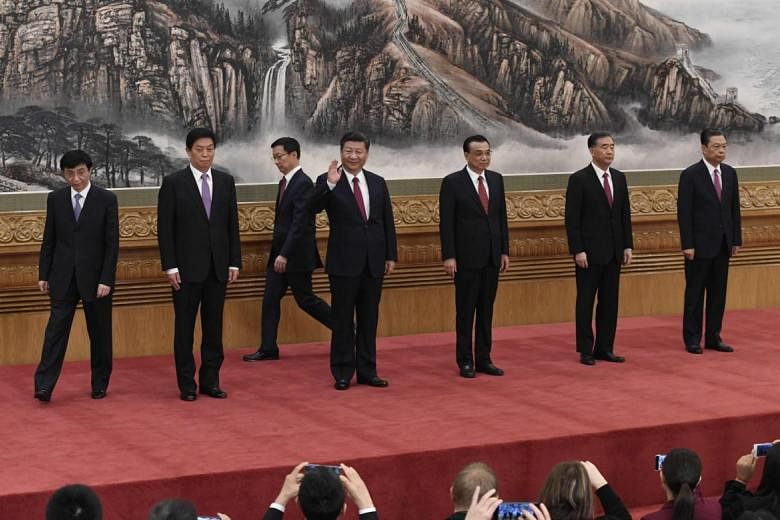SHANGHAI (REUTERS) - China will continue to "deepen"reform of state-owned enterprises (SOE) and experiment with new ownership structures, but strengthening ruling Communist Party leadership remains the guiding principle, the head of the state asset regulator said.
Imposing party discipline on state firms remains a key part of China's goals in its effort to fight graft, "upgrade"domestic industry and dominate overseas markets, Xiao Yaqing, chairman of the State-Owned Asset Supervision and Administration Commission (SASAC), said in remarks published late on Tuesday (Nov 14).
Xiao said the reforms were part of efforts to build a new "socialism with Chinese characteristics" as well as other strategies set out by President Xi Jinping during the twice-a-decade Communist Party congress last month.
"The state-owned firm is an important force to promote national modernisation and safeguard public interests, and an important material and political foundation for the development of party and state affairs," Xiao said.
China's total state-owned assets, excluding the financial and cultural sectors, had reached 154.9 trillion yuan (S$31.7 trillion) by the end of last year, up 73.1 per cent from 2012, Xiao said.
But despite major breakthroughs in industries such as space flight or high-speed rail, state enterprises still suffer from"imbalances" and structural flaws, and must create management systems and market mechanisms better suited to China's new needs.
He said China would continue to streamline and "upgrade" state firms while promoting restructuring and mergers, besides developing strategic sectors, curbing overcapacity and tackling"zombie enterprises".
China kicked off reforms of state firms in a bid to rescue the crisis-hit sector by using market forces to revive lumbering and debt-ridden industrial giants.
When China published a ground-breaking reform document in September 2015, state media focused on pledges to develop"independent market entities that operate, take on profits, losses and risks and make decisions themselves".
But while lip service is still being paid to market forces,"party building" and "strengthening party leadership" now dominate government and company rhetoric, with the state seeking to ensure corporate decision-making aligns with national goals.
Party building's primary task is to ensure the whole party "obeys the Central Committee" decision-making body and "strictly observes its political discipline and rules", Xi said in his work report to the October party congress.
"SOE reform after the 19th Party Congress will remain focused on consolidating both state-owned assets and Party authority," said Wendy Leutert, a researcher on Chinese state-owned firms at the University of Pennsylvania's Center for the Study of Contemporary China.
With China aiming to use its state-owned firms to pursue international goals, overseas multinational corporations could be at a severe disadvantage, said Jude Blanchette, who studies the party and business at the Conference Board's China Center for Economics and Business in Beijing.
"The party demands that SOEs directly serve national goals, such as securing natural resources and acquiring technology, and they are willing to go to extraordinary lengths to achieve their objectives," he said.

